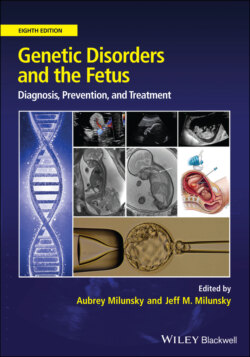Читать книгу Genetic Disorders and the Fetus - Группа авторов - Страница 26
Sensitivity to parental guilt
ОглавлениеFeelings of guilt invariably invade the genetic consultation. They should be anticipated, recognized, and dealt with directly. Assurance frequently does not suffice; witness the implacable guilt of the obligate maternal carrier of a serious X‐linked disease.221 Explanations that we all carry harmful genes often helps. Mostly, however, encouragement to move anguish into action is important. This might also help in assuaging any blame by the partner in such cases.222
Guilt is not only the preserve of the obligate carrier. Affected parents inevitably also experience guilt on transmitting their defective genes.223, 224 Frequently, parents express guilt about an occupation, medication, or illegal drug that they feel has caused or contributed to their child's problem. Kessler et al.224 advised that assuaging a parent's guilt may diminish their power of effective prevention, in that guilt may serve as a defense from being powerless.
Guilt is often felt by healthy siblings of an affected child, who feel relatively neglected by their parents and who also feel anger toward their parents and affected sibling. “Survivor guilt” is increasingly recognized, as the new DNA technologies are exploited. Experience with Huntington disease and adult polycystic kidney disease225–231 confirm not only survivor guilt with a new reality (a future) but also problems in relationships with close family members. Huggins et al.228 found that about 10 percent of individuals receiving low‐risk results experienced psychologic difficulties.
